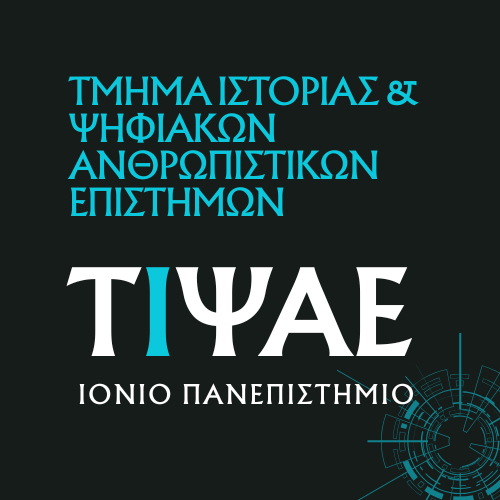INTRODUCTION TO ROMAN HISTORY
Teaching Staff: Kalliontzis Yannis
Course Code: ΙΡΩ101
Course Type: Compulsory
Course Level: Undergraduate
Course Language: Greek
Delivery method: Lectures
Semester: 2nd
ECTS: 5
E Class Page: https://opencourses.ionio.gr/courses/DHI189/
Curricula: Curriculum in History up to 2024-25, Curriculum in History and Digital Humanities from 2025
Overview of the establishment and development of the Roman constitution in the period of the Seven Kings and, especially, in the Republican era. The course focuses on: a) the reasons for the Roman expansion, b) the nature of the constitution during the Respublica, c) the social problems of the period, d) the crisis of the Respublica, e) the new economic and social structure in the 1st BC, f) Individual ambitions, struggle for power and the emergence of Octavian as sole ruler, g) Octavian 'Augustus'' regime.
The students will be acquainted with the flexible and occasionally opportunistic mechanisms employed by the Romans in order to conquer the ‘oikoumeme’; the ways in which expansion and individual ambitions led to economic and political crisis and finally to the collapse of the Respublica; comparison of Roman imperialism with modern imperialism(s).
Week #1: The period: 753 BC (foundation of Rome) – 31 BC (battle of Aktion). The meaning of the term res publica – The importance of Roman history - The sources. The peoples of Italy. .
Week #2: The Seven Kings of Rome. Tthe progressive transition to the Respublica. The main features of the Roman society.
Week #3: The political structure of the Respublica: the Senate (members for life) – 2 consuls (elected for a year) – ‘comitia tributa’ and ‘comitia centuriata’.
Week #4+5:The clash between the patricians and the plebeians – the progressive acquisition of land (ager publicus) and political rights by the plebeians (494 – 287 BC) – the relevant laws.
Week #6: The Romanization of Italy (4th to early 3rd BC) – the nature of Roman imperialism – variety and innovation: the different legal statuses awarded to the conquered.
Week #7+8: The Roman expansion to the Mediterranean (end of 3rd – mid-2nd BC) – The Punic Wars (1st, 264-241 BC; 2nd, 218-201 BC) – causes – their importance for the correlation of powers between Senate and Consuls.
Week #9: The development of Roman imperialism: the Macedonian Wars (1st, 215-205 BC; 2nd, 200-197 BC; 3rd, 171-168 BC.). The Romans and the Seleucid kingdom. Philhellenism and progressive conquest of the Greek world (146 BC) – The destruction of Carthago (146 BC).
Week #10: The consequences of expansion: upheaval within the ruling class – greediness of the oligarchy – the emergence of the latifundia. The Gracchi (133-121 BC.): the problem of land distribution and the attempts at re-organization of the administration of the provinces
Week #11+12: Late 2nd-early 1st: explosion in Italy and Asia – civil wars.
Roman history evolves around powerful individuals clashing with either the Senate or with each other: Marius and Sulla; Pompey and Julius Caesar.
Mark Antony and Octavian - the battle of Aktion (31 BC) – the incorporation of Ptolemaic Egypt – Octavian becomes de facto sole ruler of Rome
Week #13: Augustus' regime
Alföldy, G. Römische Socialgeschichte, Stuttgart 1975.
Crawford, M. H., The Roman Republic, London 19922.
Ferrary, J.-L., Philhellénisme et impérialisme: Aspects idéologiques de la conquête romaine du monde hellénistique, de la seconde guerre de Macédoine à la guerre contre Mithridate, Rome 1988
Gruen, E., The Hellenistic World and the Coming of Rome, Berkeley 1984.
Buraselis, K., Οι τρόφιμοι της λύκαινας, Αthens 2017.
Rostovtzeff, M., A History of the Ancient World, vol. II, trans. from the Russian by I. D. Duff and E. J. Bickerman, Rome 1960 [1928].
Volkmann, H., Grundzuge der romischen Geschichte, Darmstadt 1969.
3 hour lectured course. Passages from ancient literary sources as well as inscriptions are examined in class (the relevant file is uploaded on the e-class).Maps, portraits of emperors and sketches of each lecture are presented on a computer screen (also uploaded on the e-class), either in the form of Power Point or as PDF.
Oral examination at the end of the semester; in case of failure, students are reassessed in September.
Back



